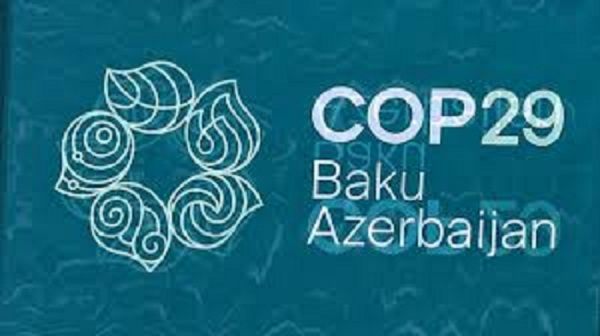“You know that it’s COP season when ‘net-zero’, ‘carbon credits’ and ‘nature-based solutions’ start popping up in our information ecosystems. During this 12-day climate confab, companies, politicians and CEOs alike will continue to make pledges and commitments littered with these buzzwords and glittering promises of yet more climate solutions to halt the crisis underway.
As communicators, we have the duty to shed light on the practices that not only deceive the public, but inflict devastation on ecosystems and communities in the name of ‘climate solutions’.
“No industry has managed to become truly ‘carbon neutral’. And instead of halting the use of fossil fuels, a thriving carbon market has cropped up. This includes the menagerie of carbon credits that are sold to offset emissions.
We won’t get into whether or not carbon offsetting works (there’s plenty of evidence that it hasn’t, we highly recommend this thorough analysis by Al Jazeera’s Ali Rae). What we instead want to focus on is who is bearing the cost of these ‘solutions’’’.
According to a release by the group, Peasant and Indigenous Press Forum, key issues to look out for at the conference include ‘Cutting through the carbon spectacle’.
The statement reads further, “there is the need to take one project in Port Loko, Sierra Leone as a prime example of common issues that can be flagged with reforestation/afforestation projects. Rewilding Maforki is one of many in Carbon Done Right’s portfolio that claims to plant ‘diverse native species on degraded smallholder lands’. In Port Loko, the project seeks to generate carbon credits by planting trees across 25,000 hectares of land for a 50 year period
1. Consent: First, Investigations by civil society orgs show that people of Port Loko District did not receive truly Free, Prior and Informed Consent (FPIC) and that the project violates the Customary Land Rights Act of Sierra Leone.
“Many landowners who signed leases for the project, reportedly don’t understand the documents they signed, or how this will impact their land access. Women were often kept out of the conversation entirely.
Companies also did not register any leases with local authorities. Keep in mind: landowner approval≠community consent. It’s vital to challenge the notion that checking legal boxes means that there is community consensus and approval.
For these communities, land is life. The harm that companies can cause through non-consensual projects is so extensive, traumatic and common in carbon development projects – it warrants much more exposure and scrutiny”, it added.

The group observed that many of them, community members in this area, neither know what carbon credits are, nor that their land will be forest-locked for decades.
Moreover, little do they know how much money the companies will be making with their land’ – Carbon Done Wrong Report
2. Loss of Land Access: The project labels the target project areas as ‘degraded’ or ‘unproductive’, despite it being used for grazing and to grow crops like cassava, groundnuts, millet, and vegetables. Taking away access and agency over these lands, Rewilding Maforki could greatly jeopardize the food sovereignty of the people of Port Loko now, and for generations to come – depending on how the lease agreements are enforced.
“Taking thousands of hectares of land to grow trees – land that people were using to grow food crops – is a big threat to food security … And because people don’t have enough land to grow food presently, there is mass migration of young people from these communities’, described local activist, Tejan Ayoub Joaque
3. Colonial approach: projects like this expose a colonial approach towards communities and sideline their ecological knowledge. Looking at Carbon Done Right’s website reveals how they view smallholder farmers: people with ‘lack of knowledge about good agricultural practices, absence of quality formal education’ and ‘low-quality planting’. No mention of the historic injustice that has kept these communities from accessing finance.
The group cautioned that “Blatant disregard for other forms of knowledge besides those produced by western science (proprietary technology systems).
Calling the people who have an ancestral connection to the land they cultivate ‘lacking in knowledge about good agricultural practices’, is classic colonial arrogance. Port Loko communities have already been burned once by a palm oil company that bulldozed their crops and then fled after failing to pay the land rent.
Ironically, the man who sold that palm oil company to the debt dodgers is Kevin Godlington, a British businessman who is the current President of Carbon Done Right. Despite his shady record, BP still forked over $2.5 million in commitment to greenwash their oil and gas business.
“And as journalists, you are providing the primary window into COP’s conference halls and understanding what unfolds in the wild west of carbon markets. Beware of power dynamics: proponents of offsets and carbon traders are perfectly positioned to leverage farmers’ unfamiliarity with carbon markets and their impoverished conditions into securing deals that favor carbon traders and investors, and put communities and ecosystems at risk. What are potential red flags that can arise from these dynamics? Who do these deals most benefit? Who makes the decisions?
“Sourcing: These local communities do not have the same reach and connection as carbon offsetting companies or sustainability industries. Proper and ethical storytelling calls for their perspectives to be respected and elevated.
Whose voices are being heard in the stories you tell? A really cool data project Carbon Violence by Alessandro Musetta linking listed offsetting projects with instances of ecological, social and/or economic violence”, the statement added.
Meanwhile, the 2024 United Nations Climate Change Conference or Conference of the Parties of the United Nations Framework Convention on Climate Change (UNFCCC), which is the UN process for negotiating an agreement to limit dangerous climate change, takes place from November 11 to 22, 2024, in Baku, Azerbaijan.

